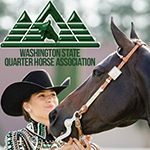GoHorseShow.com in partnership with SmartPak are pleased to continue the highly popular column, GoSmart with Charlie and Jason. Team SmartPak riders, Charlie Cole and Jason Martin have achieved success beyond compare. Since founding Highpoint Performance Horses in 1992, they have trained over 100 World Champions and 200 All-American Quarter Horse Congress Champions.
Exclusive to GoHorseShow.com, GoSmart with Charlie and Jason will give you access to Charlie and Jason and the secrets to their success like never before. Their next GoSmart column deals with the difficult task of ending the client/trainer relationship. In his own words, Charlie recommends steps to take in order to end the relationship without drama and hurt feelings.
In Charlie Cole’s Own Words:
There are all kinds of relationships. People have relationships with their doctor, teacher, friends, significant others and numerous other types of relationships. There’s one constant in all relationships, they end because nobody lives forever! Relationships can have a happy ending like recovering from an illness and not having to see your doctor again, and they can end poorly like a bad break up where one person feels the relationship is over and the other is hurt and alone.
In the horse world, the relationship between client and trainer is only second to the relationship that the client has with their horse. A good trainer provides not just training for the horse, but coaching for the rider. This trainer/client relationship is many times closer to a friendship than a business relationship. The relationship between the client and trainer can become much deeper and more complex than a regular business agreement than say the one you have with your dry cleaner or your butcher. When the relationship between trainer and client ends, it can become ugly and uncomfortable, but it doesn’t have to be this way.
The majority of the time it’s the client who decides that they want to end the relationship with their trainer. There are many reasons that a client might want to end the relationship and make a change. The most common reason a client makes a trainer change is they don’t feel they are getting their needs met. It could be the horse isn’t progressing; the rider doesn’t feel they are getting enough attention; the rider feels they want to go to the next “level”, or any number of reasons. Whatever it is–the client isn’t happy. And like in any business relationship, if the client isn’t happy, they make a change.
Making a smooth departure isn’t always easy, but it can be done. First off, the most important thing an unhappy client should do is communicate with the trainer–plan a meeting with your trainer and explain what you are unhappy about. Give your trainer a chance to know what you expect and see if you and your trainer are on the same page with your horse. Make sure you have the same goals with your horse. Many times, just opening up the lines of communication will keep the relationship from ending.
As a horse trainer, I want happy customers who are reaching their goals. I have regular talks with my clients about their goals, and I am constantly giving them progress reports on their horses. If a client isn’t happy, I want them to tell me, and if they still aren’t happy, I want them to make a change. I’ve seen it many times in the horse business–one unhappy client can make not just the trainer miserable, but the whole barn miserable. No matter how good the trainer or the horse is–not every trainer and horse is a perfect match and not every client is a match with every trainer.
So the time has come to make a change and end your relationship with your trainer. Like I said before, the trainer/client relationship is a business relationship. When you decide to switch dry cleaners, you don’t feel obligated to tell your old dry cleaner you are ending your relationship with them. You just drop your dirty jeans off at the new dry cleaner down the road! However, there is most likely a deeper and more emotional relationship with your trainer. You’ve probably invested lots of money, but also invested significant time into a friendship with your trainer. Additionally, your trainer is also losing a relationship with a horse that they most likely have put a lot of time in the saddle. This can cause hurt feelings and bruised egos.
Here’s what a trainer has to remember–we are in the service industry. Just like the dry cleaner, if our customer is unhappy they are not only going to leave–they have the right to leave. It doesn’t matter whether we think we provided a good service or not, the client makes that decision, and they can spend their money somewhere else if they choose.
So what’s the best way to end your relationship with your trainer? Well first, I think it’s a good idea for the client to see if there’s another trainer who can help reach your goals and have a meeting with that trainer. In that meeting, discuss your goals and what you expect from your horse’s training. Don’t discuss with the new potential trainer what you are unhappy about with your current trainer. As a trainer myself, this is a caution sign. Instead of saying, “My trainer is always late for my lessons and my horse isn’t changing leads good enough,” say something like “My schedule isn’t very open, so, I only have an hour and a half for each lesson, does that work into your schedule?” or “My horses lead changes need improving, is that something you think you can help my horse with in his training?” When a new client comes to me, I ask what their goals are and make sure they are achievable goals.
Once you have found a new trainer, then, it’s time to talk to your trainer. This shouldn’t be your first talk. Hopefully, you have tried to give your trainer an opportunity to improve your horse and your trainer/client relationship before making a move. I think many trainers expect too much when a client wants to switch trainers. You as the client, don’t owe a full explanation as to why you are leaving. You can make the discussion as simple as, “I appreciate all you’ve done for my horse and me, but I’m going to make a change.” Or, you can elaborate more if your feel it necessary but most likely, less is best. It’s also best to clear up all financial obligations immediately and not drag out making the switch.
When a customer comes to me from another trainer, my only obligation to the old trainer is to call and make sure the old trainer has been paid. If a client leaves me, I don’t take it personal, and I don’t get angry with the new trainer. Most clients don’t stay in the horse business as long as trainers. If you are being upfront and professional, then, there’s no reason to get mad and be uncomfortable at the shows.
Trainers have to remember–we are in the service industry. Once your horse is with the new trainer–your friends and others will ask or want know why the relationship ended with your former trainer. It’s best to take the high road and say something like, “I have new goals,” or “I was ready for a change,” than something negative. That being said, the horse’s care and well-being is paramount, and, if you feel those needs weren’t being met, then, it’s only fair to the horse to share that info when asked.
It’s sad that many relationships will eventually end, but, you can’t let that get you down. A good relationship with your trainer will make your relationship with your horse even better, and we all know that there’s nothing like the bond between horse and rider.








